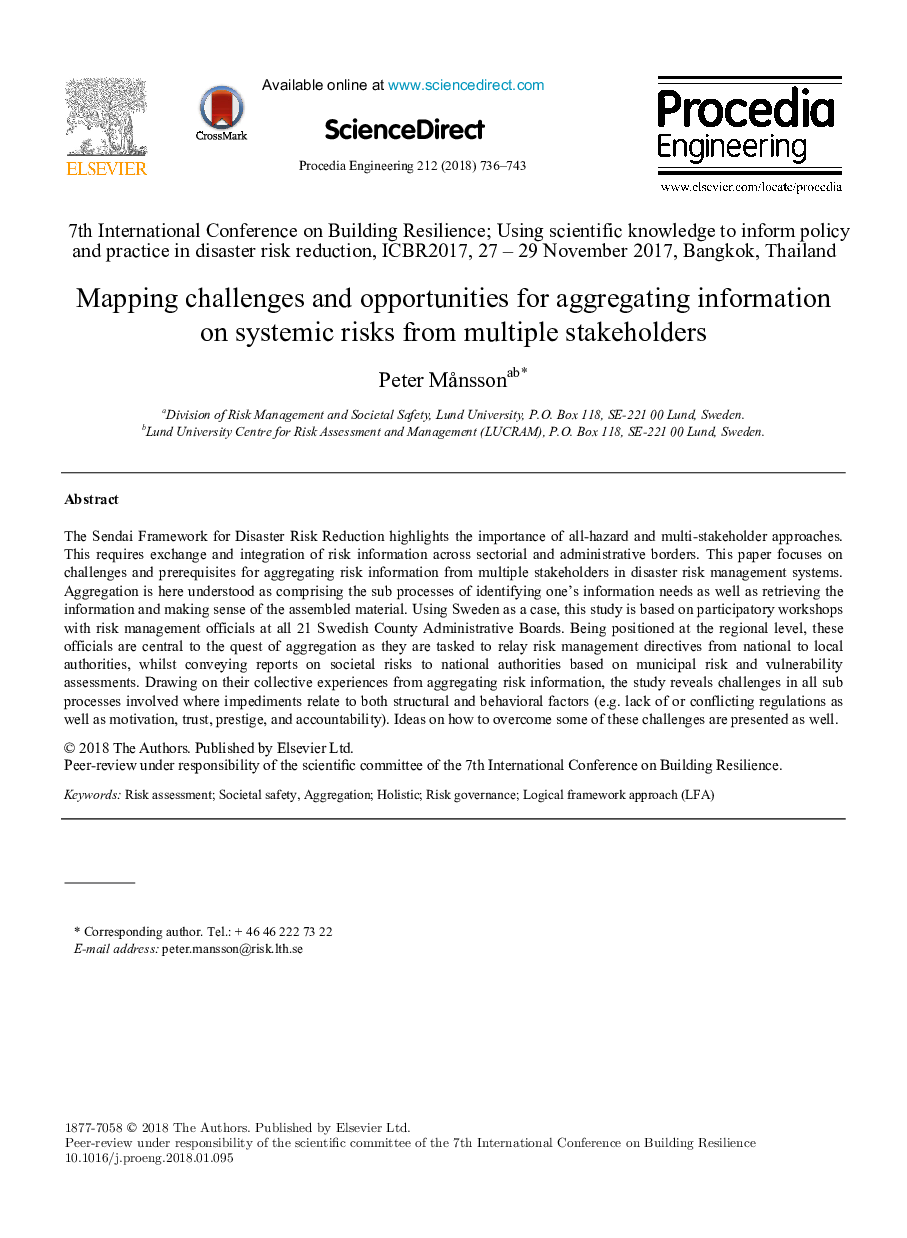| Article ID | Journal | Published Year | Pages | File Type |
|---|---|---|---|---|
| 7226141 | Procedia Engineering | 2018 | 8 Pages |
Abstract
The Sendai Framework for Disaster Risk Reduction highlights the importance of all-hazard and multi-stakeholder approaches. This requires exchange and integration of risk information across sectorial and administrative borders. This paper focuses on challenges and prerequisites for aggregating risk information from multiple stakeholders in disaster risk management systems. Aggregation is here understood as comprising the sub processes of identifying one's information needs as well as retrieving the information and making sense of the assembled material. Using Sweden as a case, this study is based on participatory workshops with risk management officials at all 21 Swedish County Administrative Boards. Being positioned at the regional level, these officials are central to the quest of aggregation as they are tasked to relay risk management directives from national to local authorities, whilst conveying reports on societal risks to national authorities based on municipal risk and vulnerability assessments. Drawing on their collective experiences from aggregating risk information, the study reveals challenges in all sub processes involved where impediments relate to both structural and behavioral factors (e.g. lack of or conflicting regulations as well as motivation, trust, prestige, and accountability). Ideas on how to overcome some of these challenges are presented as well.
Related Topics
Physical Sciences and Engineering
Engineering
Engineering (General)
Authors
Peter MÃ¥nsson,
